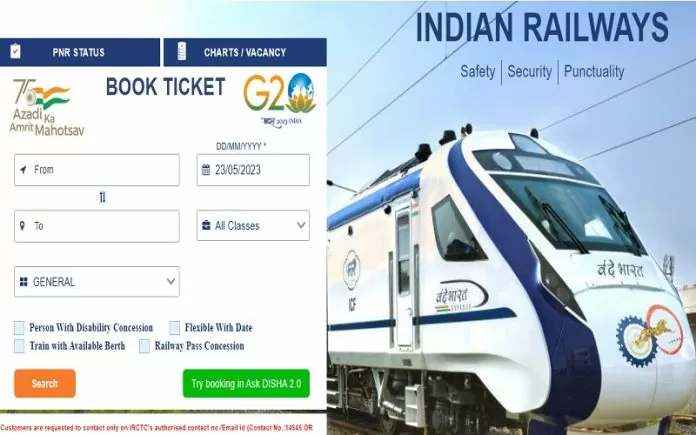Buy Now Pay Later Service: The benefit of this new facility will be the most for those passengers who are troubled by the problems of cash transfer.
IRCTC Buy Now Pay Later Service: Lakhs of people travel everyday by Indian Railways. Indian Railways tries its best to provide facilities to its passengers in every way. Under this, now Indian Railways has started a new service, under which now even if a passenger does not have money to buy a ticket, he can travel by buying a ticket. Due to which the travel of passengers can be made more accessible. The name of this railway service is Buy Now, Pay Later, in which you will not have to pay immediately and passengers can book their tickets through Paytm. Paytm Postservice has been enabled in the Railway app.
Let us know in detail how this service works.
- First of all download the IRCTC app on your phone.
- For this, you go to Google Playstore and download the app.
- Then file all the information asked in the IRCTC app like name, date, boarding station.
- In the payment section, you will get the option of Buy Now, Pay Later.
- You select it, after which you will have to login to Paytm.
- After logging in to Paytm, you will have to send the Verification Code.
- That code will come on your registered mobile number.
- When you fill it, your ticket will be booked.
- You will have to pay for the ticket within the payment grace period of IRCTC.
- In this, you will be given a certain period, under which you can pay your ticket money.
- This period will vary from ticket to ticket.
Certain things
- IRCTC is a subsidiary of Indian Railways. Its name is Indian Railway Catering and Tourism Corporation.
- It has an official website through which lakhs of people book tickets daily.
- Through this website, you are given every information related to the train, through this you can not only book tickets but also get information related to tourism and food.
- The head office of Indian Railway Catering and Tourism Corporation is located in New Delhi.
- It was established on 27 September 1999 by the Government of India.



